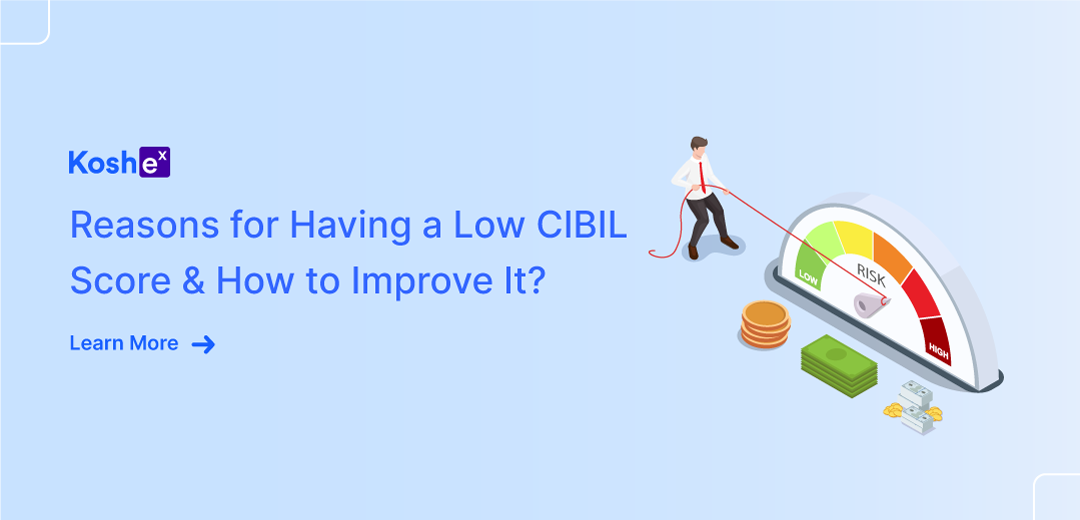In this blog, we are answering the most burning question – Should you be investing in equity mutual funds? Since equity mutual funds invest in stocks, many tend to stay away from them.
But do you know that they help you beat inflation? Read the article to learn how.
What Are Equity Mutual Funds?
If you are wondering what mutual funds are and how they work, please read our detailed article about mutual funds and how you can choose the right one for you and your goals.
Equity mutual funds invest a major portion of your money in equities and stocks of different companies. They are also known as Growth Funds. These funds generate higher returns than fixed deposits or debt mutual funds.
However, these funds come with a certain amount of risk since their performance and return is dependent on the equity market situation.
Types Of Equity Mutual Funds
The main goal of equity mutual funds is capital appreciation, but it also depends on the types of stocks that the fund invests in. Below are the types of equity mutual funds.
Based On Investment Objective
Large-Cap Equity Funds – This equity mutual fund invests a minimum of 80% of its assets in companies that rank between 1 and 100 in terms of full market capitalization.
These funds are relatively less risky compared to mid-cap and small-cap funds.
Mid-Cap Equity Funds – These equity funds invest a minimum of 65% of their assets in equity shares of companies that rank between 101-250 in terms of market capitalization.
They are relatively riskier than large-cap funds. However, they have the potential to generate better returns than large-cap funds.
Large & Mid-Cap Funds – These equity funds invest a minimum of 35% of their assets in both large-cap and mid-cap companies.
The remaining 30% of the assets can be invested in equities other than large and mid-cap and/or debt and money market instruments and such other securities as may be permitted by SEBI.
Small-Cap Funds – This equity mutual fund invests a minimum of 65% of its assets in equity shares of companies that rank 251 and above in terms of market capitalization.
These funds are riskier than large and mid-cap funds but have the potential to provide reasonable returns.
Multi-Cap Funds – These equity funds invest in large-cap, mid-cap, and small-cap companies according to the relevant market conditions.
This fund gives the investors an opportunity to invest in a diversified portfolio across market capitalization.
Based On Investment Strategy
These are the major investment strategies followed by the fund house.
- Top-Down Strategy – This strategy means that the sector is chosen first and then the stocks within that sector are purchased in the portfolio.
- Bottom-Up Strategy – This means that well-researched stocks are bought irrespective of the sector.
- Growth Strategy – This means that the fund will invest in companies that have a consistent track record of profitability and growth and are likely to continue on this path.
- Value Strategy – It means that the fund will invest in companies that have the potential to grow exponentially in the future and are currently available at a lower value.
Based On Asset Allocation
There are a few funds that divide the portfolio allocation between mostly equity (at least 65%) and the remaining in debt or between domestic and international equity.
For example, the Equity Linked Savings Scheme (ELSS funds) is a tax-saving mutual fund that invests mostly in equity and equity-related schemes. ELSS funds help you save up to ₹1,50,000 annually in taxes.
Benefits Of Investing In Equity Mutual Funds
Diversification – Diversification means that a fund is broken down and invested in different or ‘diverse’ portfolios. This means that your money will not go completely into one company or a certain type of company in the stock market.
Why? Because if that company experiences losses, your entire investment will be at risk.
So, it is important that your money is invested in a diversified portfolio that is exposed to different sectors of the economy. The phrase ‘don’t put all your eggs in the same basket’ can be used to describe the meaning of diversification.
Risk Mitigation – Since equity mutual funds’ corpus is evenly spread over different stocks, it also spreads the associated profits and risks. When one stock declines, the others may gain.
Also, if one sector is plunging, the other may balance the portfolio, thus reducing the overall loss incurred. They lower the stock and sector-specific risk to a huge extent due to the investor not being dependent on one stock or sector.
Inflation-Adjusted Returns – When you compare equity mutual funds with traditional investment avenues, the former has the potential to generate better inflation-adjusted returns as the returns are market-linked.
Equity funds offer opportunities to reasonably grow investors’ capital over the long term.
Expert Management – Mutual funds are professionally managed by analysts who have experience and expertise in investment management.
When it comes to mutual funds, you don’t have to sit down and research where you should be putting your money because there are experts who are doing the research for you.
You can rest easy knowing that the fund managers will do their best to get higher returns.
Cost-Efficient – Equity funds are cost-efficient as you can own shares in several companies via small investments without a high capital requirement.
If you purchase stocks in big companies, it would burn a hole in your pocket. Hence, equity mutual funds provide economies of scale by making you a participant investor in different companies than what you could have done individually.
Also, you can invest in equity mutual funds via SIP (Systematic Investment Plan), and with this mode, you can start your investing journey for as low as ₹100 per month.
Also, you can invest in mutual funds via the lump sum mode.
If you have received a bonus or tax return and looking for the perfect investment avenue, the lumpsum mode has got you! In this mode, you can make a one-time investment and see it grow.
Tax-Efficient – Equity funds are taxed at 10% for long-term capital gains and 15% for short-term gains. However, if you invest in an ELSS (Equity Linked Savings Scheme) fund, you get the tax benefits under Section 80C of the Income Tax Act and you can get tax exemption up to ₹1.5 lakh.
ELSS is the only tax-saving scheme with the lowest lock-in period (i.e.) 3 years, compared to other tax-saving schemes.
In The End…
If you are a beginner and are interested in exploring the stock market, equity mutual funds might be the perfect investment choice for you.
Equity mutual funds are advised for the long-term, so it is a good idea to stay invested in them for at least five to seven years. This will give the equity mutual fund scheme enough time for it to grow and give you higher returns.
Convinced that equity mutual funds are for you? Head over to Koshex today and create an account within 2 minutes.
You can find the right mutual fund scheme for you at Koshex and achieve your goals seamlessly with us. Sign up with us today!









Leave a Comment